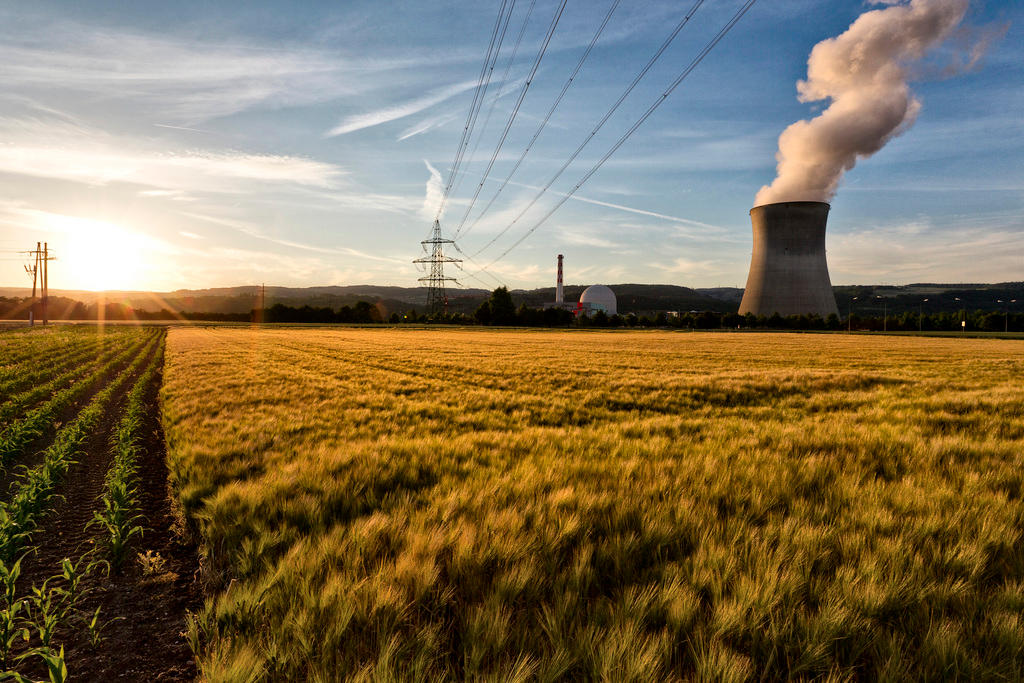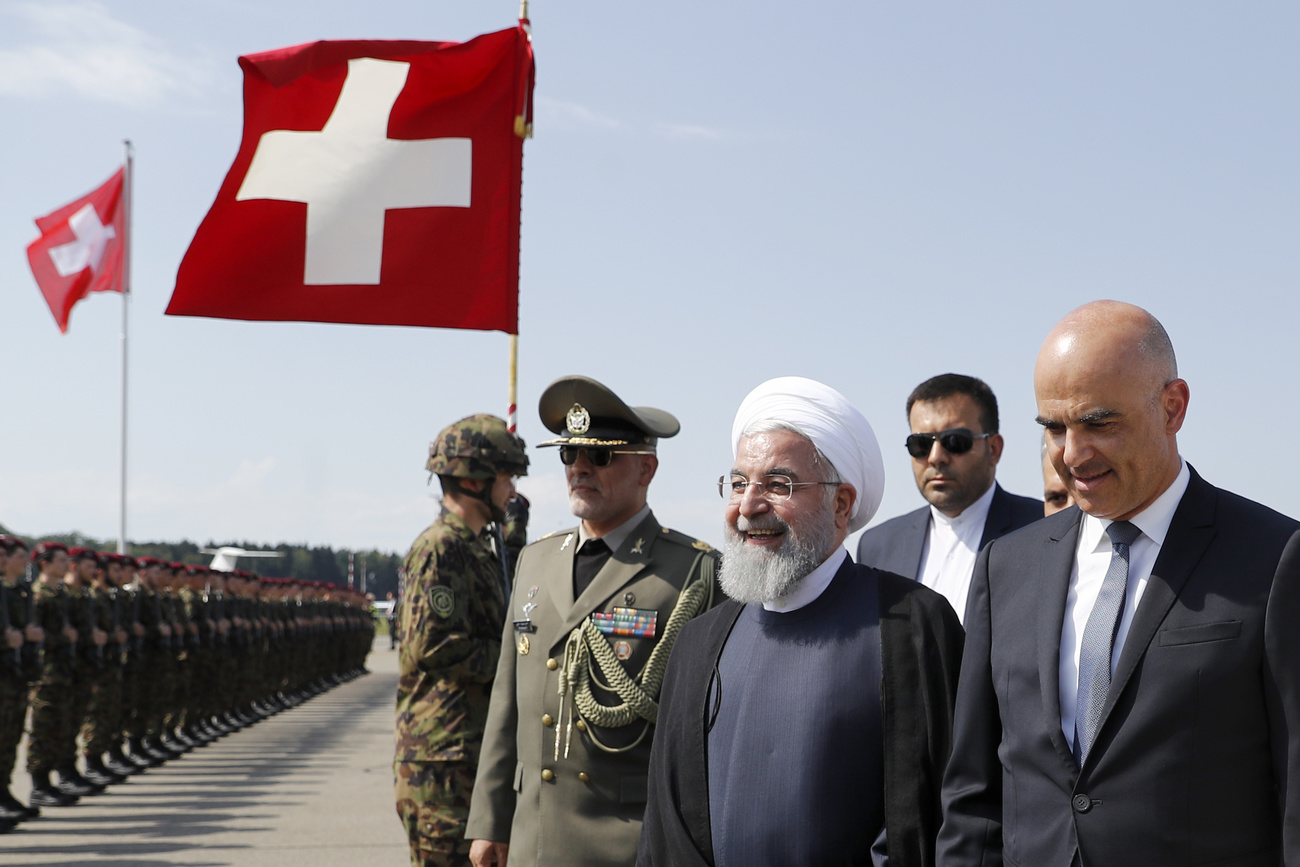
IEA calls for a swift Swiss-EU deal on electricity

An international review of Switzerland’s energy policy, though largely positive, warns that a planned phase-out of nuclear energy will make it more difficult to remain low-carbon in coming decades.
The review, released on Monday by the International Energy Agency (IEA), lauds the “largely carbon-free electricity sector” that means Switzerland has the least carbon-intense energy supply of all 30 IEA member states.
Energy efficiency has improved notably, the agency wrote in a statementExternal link, with 2016 consumption remaining at the same level as it was in 2000 despite a 15% population growth and an economy 30% bigger.
The efficiency of buildings was highlighted as a key contributing factor, as was the boost in public funds allocated to research in the energy sector.
Settle accounts with Europe
However, with the country’s 2017 decision to phase-out nuclear power (which, along with hydro, drives the lion’s share of national electricity production), difficulties lie ahead in assuring security of supply, the IEA says.
It recommends pushing for a positive outcome in negotiations with the EU on the European integration of the Swiss electricity market – currently, as with a range of thematic issues, talks between Bern and Brussels are ongoing.
“The IEA encourages the Swiss government to bring ongoing negotiations with the EU on an electricity agreement to a successful outcome as both Switzerland and the EU will gain access to flexible energy supplies,” said IEA Deputy Executive Director Paul Simons.
In future, particularly in winter when low water levels impact on hydro production, Switzerland will need to turn to its neighbours for imports of electricity, the IEA foresees.
On the same day that the Geneva-based Intergovernmental Panel on Climate Change (IPCC) released a report saying that time is running out for efforts to limit rising temperatures to only 1.5 degrees Celsius, the IEA also said that Swiss emissions-reduction targets for 2020 look “ambitious based on current trends”.
Calling for more radical policies to meet the next set of binding targets in 2030, the IEA recommended better distributing the burden of carbon reduction across different sectors – notably fossil and motor fuels.

More
Swiss give green light for renewables and nuclear phase out

In compliance with the JTI standards
More: SWI swissinfo.ch certified by the Journalism Trust Initiative





























You can find an overview of ongoing debates with our journalists here . Please join us!
If you want to start a conversation about a topic raised in this article or want to report factual errors, email us at english@swissinfo.ch.